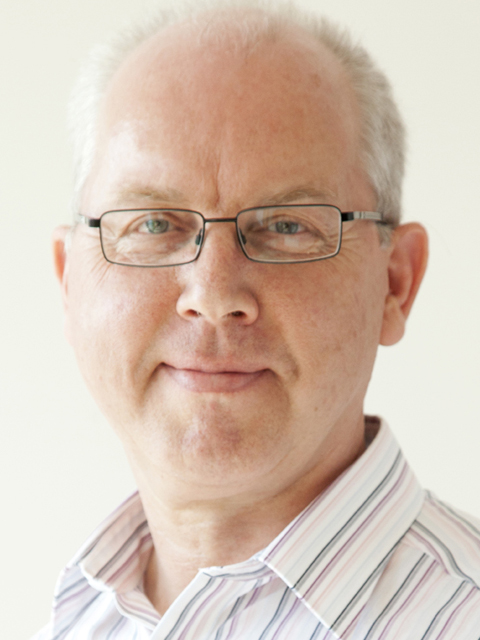Robert Maas, a tax partner at Blackstone Franks, is a member of the ICAEW Tax Faculty’s Technical Committee. He was responding to a blog post by Michael Izza, CEO at the ICAEW, calling on members engaged in ‘the kinds of schemes highlighted in The Times’ to ask themselves whether they were ‘upholding the honour and reputation of ICAEW chartered accountants’. If the answer was no, Izza wrote, ‘they need to ask themselves whether they want to belong to our profession or not’.
As Tax Journal reported on 6 July, the chief executive of the Society of Trust and Estate Practitioners (STEP), David Harvey, backed Izza in a comment posted on Izza’s Moorgate Place blog. Harvey said some tax avoidance schemes ‘undoubtedly’ failed the test of fairness, and reputable professionals should recognise the changing tax environment when they advised clients.
But it emerged yesterday that Izza’s blog post was published twice on 29 June in different sections of the ICAEW website. The Moorgate Place version – on which Tax Journal’s new story was based – has attracted 41 comments. The same remarks, published in a separate 'tax forum' section of the website, have attracted 17 comments. They include many expressions of support, but some contributors have called on Izza to withdraw his remarks.
Namesakes
Several contributors have chosen to remain anonymous. But at least two appear to share the same name as well-known tax professionals. STEP’s David Harvey posted a comment immediately after his namesake, who had said that Izza’s comments were ‘inappropriate and ill- informed’.
‘Michael Quinlan’ claimed that Izza did not have ‘the intellect to distinguish between acceptable tax avoidance and the unacceptable’. Izza was ‘out of line’, he said, adding that major firms of accountants ‘have all been deeply involved with aggressive tax avoidance since time immemorial, much more so today’. Izza should ‘withdraw or resign’, he wrote. But this was not Michael Quinlan, partner and competency leader for stamp taxes at Deloitte, who told Tax Journal that he had not commented and did not wish to do so.
‘The growing power of public opinion’
The fact that the public row has broken out on the ICAEW website – tax professionals have, until recently, generally kept silent on the issue amid growing public controversy – appears to reflect a lack of confidence in the ability of mainstream media to report tax issues accurately.
Maas took issue with the recent press coverage, saying he did not think the film schemes ‘abhorred’ by The Times were particularly aggressive: ‘It also seems to me to be wrong for chartered accountants to react to what the press deems to be "public opinion", without a full consideration of the facts. Isn't accountancy built on interpreting facts? I don't promote tax schemes but if a client wants one I'll find it for him. I think that part of my professional duty.’
He added: ‘Fortunately, I'm getting old and though I would like to have seen out my 50 years as a chartered accountant if my professional body no longer wants me, so be it. My conscience is clear; so is my moral compass. Personally I would much prefer my institute to explain to Joe Public that we have an unfair tax system in many respects and that tax avoiders often simply want to redress the balance and achieve what they perceive to be fairer.’
In contrast, Rebecca Benneyworth, deputy chairman at the Tax Faculty, had congratulated Times journalists. They had conveyed the outline of complex avoidance schemes ‘in an intelligible way’, Benneyworth told Tax Journal last month.
But Trevor Johnson, senior technical editor at CCH, said this week that the coverage of the ‘K2’ scheme used by Jimmy Carr and others had demonstrated the ‘growing power of public opinion in the tax avoidance debate’.
‘Unfortunately that opinion is ill-informed and stoked up by journalists who are not going to let the facts get in the way of a good scandal,’ he said.
Johnson, writing in CCH’s online news service for chartered tax advisers, argued that although only brief details of the scheme were in the public domain it was clear that it did not work, so ‘Carr has not avoided tax of £millions’. He added that if any of the scheme’s promoters would like to explain why it did work, he would be ‘delighted’ to hear from them.
‘Ashamed’
‘K Paddock’ backed Izza on the ‘tax forum’ version of Izza’s blog, saying he was ‘ashamed of my, and the legal, profession which has been responsible for the most complicated tax system in the world by forcing the Revenue to [continually] play “catch up” with their ingenuity which is contrary to the intentions of [often poorly drafted] law’.
‘Brian Jackson’ wrote: ‘I am glad that I do not have to look into the mirror, as Michael Izza suggests, and see someone who has spent his career helping rich people become even richer, not by their own industry, but at the expense of the rest of us.’
Tax Journal has invited the Tax Faculty to comment. The ICAEW declined to comment when contacted yesterday, and Izza was unavailable for comment.

















